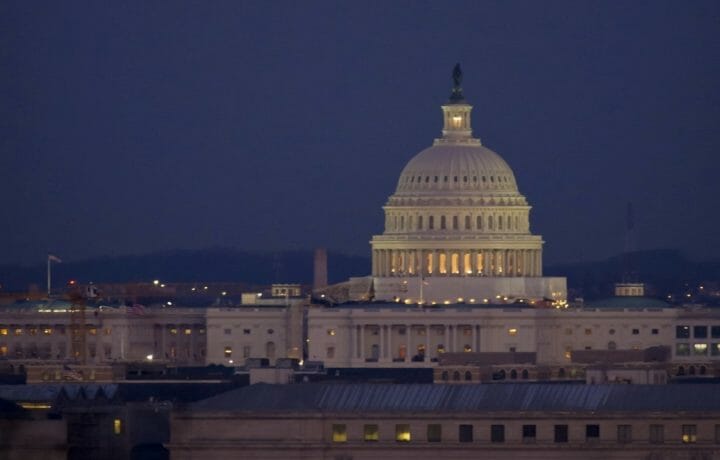Last week Speaker of the House Nancy Pelosi (D-Calif.) told reporters that there was little reason for congressional interns to undergo background checks. The speaker had been asked if there were any concerns that fellow California Democratic Rep. Eric Swalwell had helped place interns recommended by Christine Fang, who is now suspected of being a Chinese spy.
“I think we should make sure that everybody knows what they are being subjected to, but I don’t know if that means that we have to do background checks for every intern who comes into the Capitol,” Pelosi responded.
According to a report from the Washington Examiner, some of Rep. Swalwell’s interns had either previously worked for or went on to work in other congressional offices. These included Rep. Ro Khanna, Sen. Dianne Feinstein, Rep. Cheri Bustos, Rep. Juan Vargas, Rep. Harley Rouda, and House Majority Leader Steny Hoyer.
Background Checks
While the House Speaker suggested that not every intern may need to be subjected to a background check, the issue may depend on what their role may be.
“If they require clearances, sure,” attorney Mark Zaid, who specializes in security clearance related matters, told ClearanceJobs. “But I doubt background investigations are undertaken on regular full-time staff who don’t have a clearance so why would there be a need for something more extensive for interns,” Zaid added.
While not required, some internship application forms specifically say that a background check may be conducted. An application form from the Office of Congressman Thomas Massie (R-Kentucky), who has served in Congress since 2012 stated:
I understand that any information I give may be investigated and that the Office of Congressman Thomas Massie reserves the right to conduct a background check, which may include a reference check, searches conducted on the Internet, and/or a criminal background check. I consent to such a background check and to the release of information about my ability and fitness for an internship with the Office of Congressman Thomas Massie by employers, schools, law enforcement agencies, and other individuals and organizations to investigators, personnel specialists, and other authorized employees or representatives of the Office of Congressman Thomas Massie. I understand that for financial or lending institutions, medical institutions, hospitals, healthcare professionals, and some other sources of information, a separate specific release may be needed, and I may be contacted for such a release at a later date.
Another form from the office of Congressman Hakeem Jeffires (D-N.Y.), also said it has “the right to conduct a background check, which may include a reference check, searches conducted on the Internet, and/or a criminal background check.”
The requirements for a security clearance and background investigation for congressional staff are entirely dependent upon whether or not the individual may have access to classified information, and is generally specific to congressional members serving on intelligence committees or subcommittees. The ‘sensitivity’ of the position itself doesn’t merit any investigation.
As ClearanceJobs previously wrote, “Once a congressional or judicial staff member are ‘read in,’ he/she should receive training on how to properly protect classified information. They also receive a clarification of the consequences when he/she does not properly protect classified information.”
Interns and Government Agencies
There are few cases where internships require background checks. Those who take an internship with a government agency or government contractor that require work with sensitive information that may impact national security could necessitate a background investigation for the purpose of granting a security clearance.
A November 2018 Congressional Research Service report, “Internships, Fellowships, and Other Work Experience Opportunities in the Federal Government,” reports how some of these positions do require security clearance. Among those listed were opportunities with the Department of Homeland Security (DHS) – which stated “Most, if not all, of the programs require U.S. citizenship, and some require a security clearance.”
To qualify for the FBI’s internships, for example, students must be U.S. citizens, be able to pass all FBI background investigation requirements, and must be able to receive a Top Secret security clearance. Requirements are similar for internships with the CIA and the Defense Intelligence Agency (DIA).
In contrast, congressional interns can generally get in the door with little more than the right recommendation – as was the case for Fang, who helped place interns (and potential Chinese spies) through her congressional connections.
“Washington is a city run on interns,” said Sean Bigley. national security attorney and managing partner of Bigley Ranish, LLP. “Most don’t have access to classified information, so the background investigation they require often consists of little more than an FBI name check – if that.”
As the situation with Fang also highlights, it could be easy to place the individuals close to sensitive information, even if that information isn’t classified.
“The problem is that these same legions of uncleared, largely unvetted twenty-somethings have physical access to a lot of sensitive places,” Bigley told ClearanceJobs. “That can mean opportunities to overhear sensitive information, pilfer sensitive documents, or even facilitate the placement of listening devices. I started my own career as a D.C. intern many years ago, and I think today’s college students should have the same opportunity. But I also think a conversation is long overdue about if and how we might implement a more holistic vetting system for those with access to sensitive spaces.”



